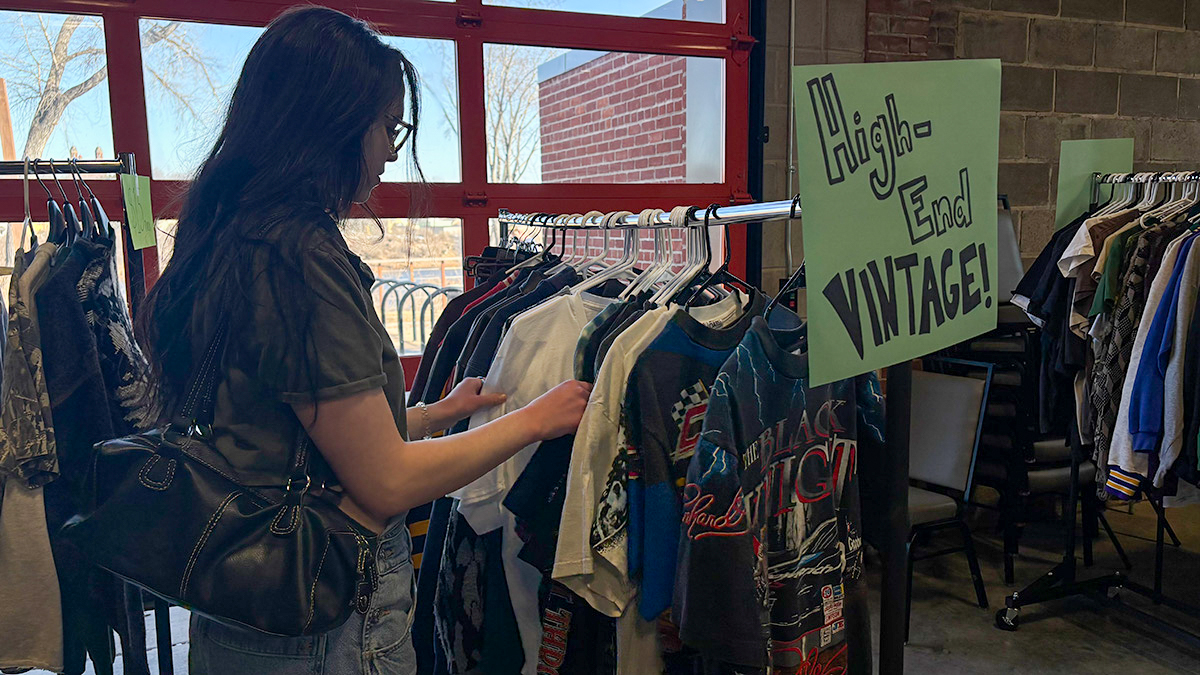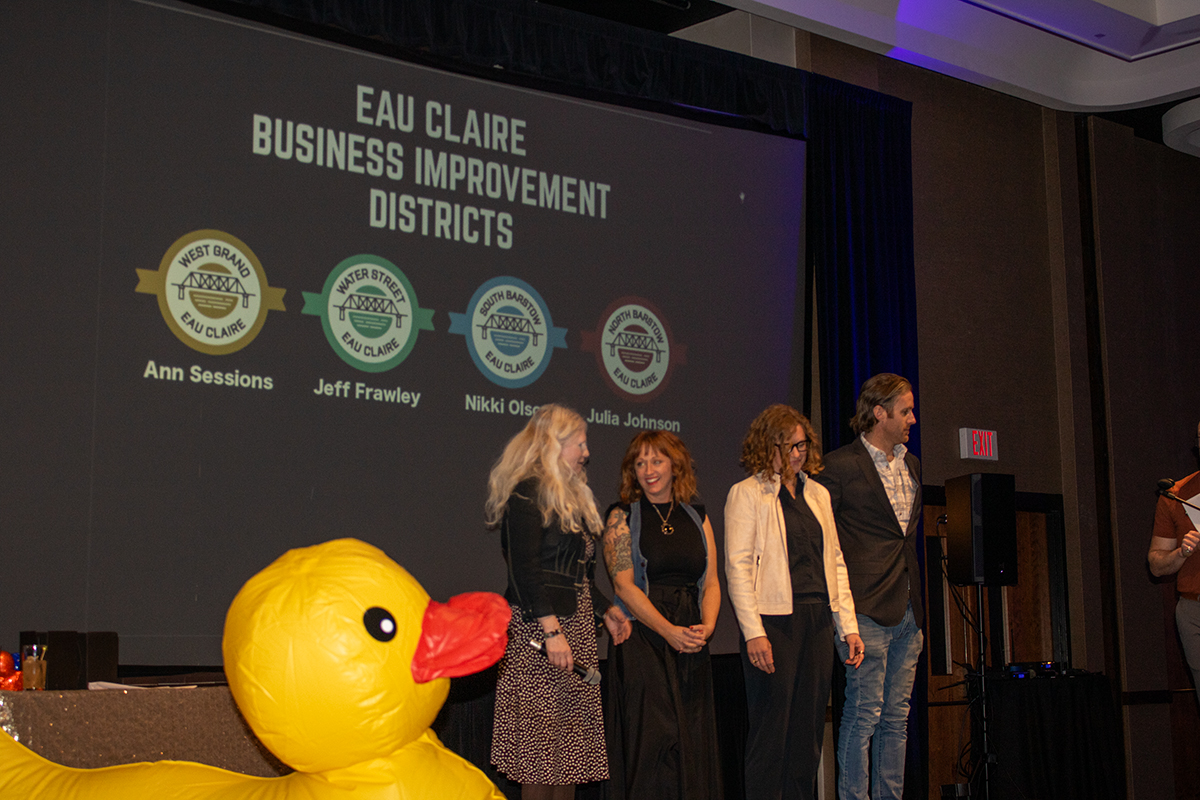Emotions ran high in Davies Theatre Tuesday evening during the screening of Miss Representation, a Sundance documentary addressing the problematic and increasingly toxic depictions of women in our society.
Written, directed and produced by actress and activist Jennifer Siebel Newsom, the film included a rapid-fire barrage of sexist images, shocking statistics and revealing interviews with influential women including Gloria Steinem, Katie Couric and Condoleezza Rice.
In 90 minutes, Newsom exposes viewers to a slew of issues, generating a wide array of emotion. Tuesday’s screening prompted laughter, exasperated groans and even a few sniffles. But for several UW-Eau Claire students, the general take-home sentiment was one of motivated passion.
Sophomore Megan Kapra said that as a business administration major, she understands the double standards of women in politics, an ongoing theme discussed throughout the film.
“A couple weeks ago I remember someone asking me ‘what do you want to do with that major?’ and I remember saying, ‘oh I want to be a CEO’, but it was in a joking manner because I was thinking to myself, ‘how many women are actually CEOs and how long would it take me to do that?’” she said. “Just the stereotype that men control the business world and that women are less qualified makes me so angry.”
Freshman world politics major Nicolette Nauman said she also latched on to the political aspect of the documentary. “I feel bad for (Hillary) Clinton, even though I don’t agree with her politics,” she said. “She was being written off as a masculine b**** … and it was the same with Sarah Palin.”
Intermittently dispersed throughout the film were statistics on the media’s increasingly negative impact on young girls’ self-esteem. For freshman Lacey Melsness, these facts spoke for themselves.
“I thought it was really interesting because I didn’t know a lot of the statistics that were in there,” she said. “They pointed out a lot things you don’t realize until it’s brought to your attention.”
The screening was presented by the Eau Claire American Association of University Women — an affiliate branch of the larger national organization.
Co-chair of the program committee Robin Miller said the goal of the film — much like the objectives of AAUW — is to empower women.
“The media’s message about women is that women’s values lie in their youth, and their beauty and their sexuality, and AAUW’s feels very strongly that this is a message that presents obstacles to women and we think that this film shows that,” she said.
Senior social work major Paul Williams was one of multiple audience members who stayed after to discuss and question the film’s implications. He also believes more people should see the film and that knowledge is the first step to gaining media literacy.
“I think if people could see movies like this it would totally affect how they look at people, think about people, think about what they can do with themselves to help create change,” he said. “Being exposed to the information is probably the first step.”
Naumen said that in order to stimulate progress and alterations in women’s role in the media, people need to become informed and stay determined.
“We are making baby steps and occasionally giant strides, but we really need to keep at it,” she said. “Stuff like this doesn’t happen overnight.”







